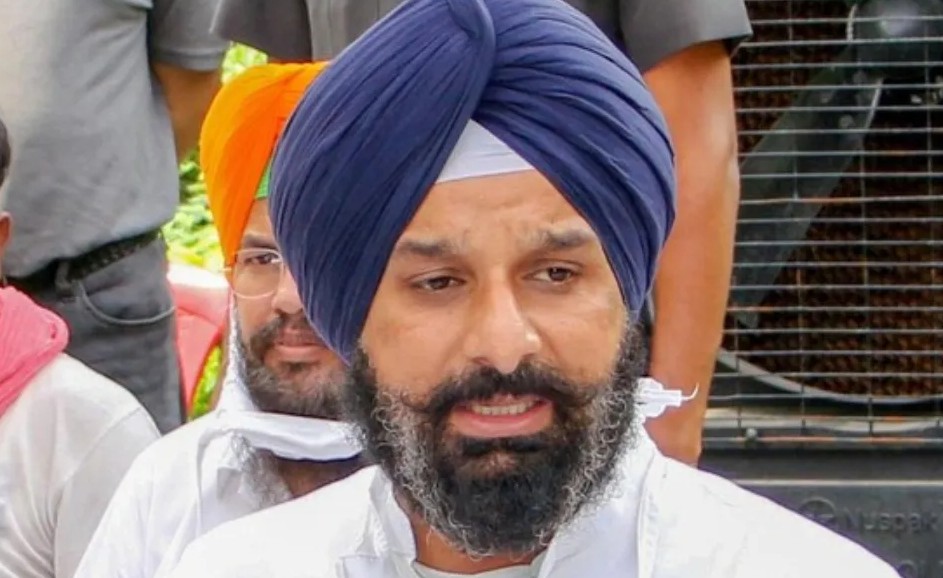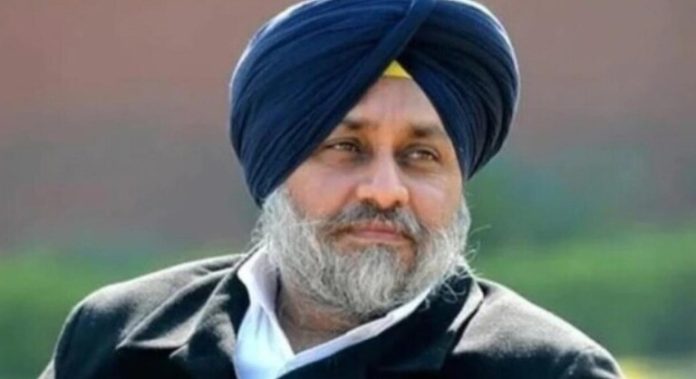Shiromani Akali Dal (SAD) president Sukhbir Singh Badal has strongly condemned the Punjab government’s decision to withdraw the security cover of Bikram Singh Majithia, a senior party leader and former minister. He has accused the ruling Aam Aadmi Party (AAP) of engaging in political vendetta and jeopardizing the safety of opposition leaders by making them vulnerable to potential threats.
Badal criticized the government for what he described as “reckless and politically motivated actions” aimed at silencing opposition voices. He argued that the decision to withdraw Majithia’s security was taken without proper risk assessment and was driven solely by political considerations. He claimed that the move was part of a broader pattern of intimidation, where the AAP-led government was targeting its political adversaries under the pretext of administrative decisions.
Bikram Singh Majithia, a prominent SAD leader and brother-in-law of Sukhbir Badal, has been a significant political figure in Punjab. He has served as a minister and has played a crucial role in the party’s strategy and outreach efforts. Over the years, Majithia has faced multiple controversies and legal challenges, particularly in relation to allegations of his involvement in drug trafficking. While he has denied these charges and accused the government of fabricating cases against him, his security cover had remained a matter of debate due to the perceived threats he faces.
Sukhbir Badal pointed out that Majithia had been granted security cover based on intelligence inputs and threat assessments conducted by law enforcement agencies. He asserted that the Punjab government’s decision to withdraw this security was not based on any credible assessment but was instead a calculated move to weaken the opposition. He argued that political leaders, irrespective of party affiliations, should be provided adequate protection if there are genuine security concerns.

The SAD president also highlighted the broader implications of such decisions, warning that removing security cover from opposition leaders could set a dangerous precedent. He claimed that if security measures were determined by political considerations rather than genuine threats, it could lead to a situation where only ruling party members receive protection while opposition leaders are left vulnerable. This, he warned, could severely impact the democratic process and discourage leaders from speaking out against the government.
Furthermore, Badal criticized AAP’s approach to governance, accusing the party of prioritizing political vendetta over public welfare. He alleged that the Punjab government was more focused on settling scores with opposition leaders than addressing pressing issues such as unemployment, law and order, and economic development. He urged Chief Minister Bhagwant Mann to reconsider the decision and reinstate Majithia’s security cover, emphasizing that political differences should not compromise an individual’s safety.
In response to these allegations, AAP leaders defended the decision, arguing that the withdrawal of security was part of a broader effort to rationalize the use of state resources. They claimed that many political leaders had been receiving excessive security at the expense of taxpayers, and the government was taking steps to ensure that security personnel were deployed where they were genuinely needed. They also dismissed Badal’s accusations of political vendetta, stating that security assessments were conducted based on objective criteria and not party affiliations.
Despite these justifications, the decision has sparked a heated political debate in Punjab, with SAD and its allies rallying behind Majithia and accusing the government of endangering political opponents. Many within the party have vowed to protest against what they see as an attempt to intimidate and weaken opposition voices. The controversy is expected to escalate in the coming days, with SAD planning to take legal and political measures to challenge the decision.
Sukhbir Badal has also called upon the central government to intervene and ensure that political leaders who face genuine threats receive adequate protection. He argued that state governments should not have unchecked authority to decide security matters based on political considerations and that an independent body should oversee such decisions to prevent misuse of power.
As the debate unfolds, political analysts believe that the issue could have broader ramifications for Punjab’s political landscape. With the state set to witness crucial elections in the coming years, the confrontation between SAD and AAP is likely to intensify, with security issues becoming a significant point of contention. For now, the withdrawal of Majithia’s security has added another layer of political tension in Punjab, further deepening the rivalry between the ruling and opposition parties.


